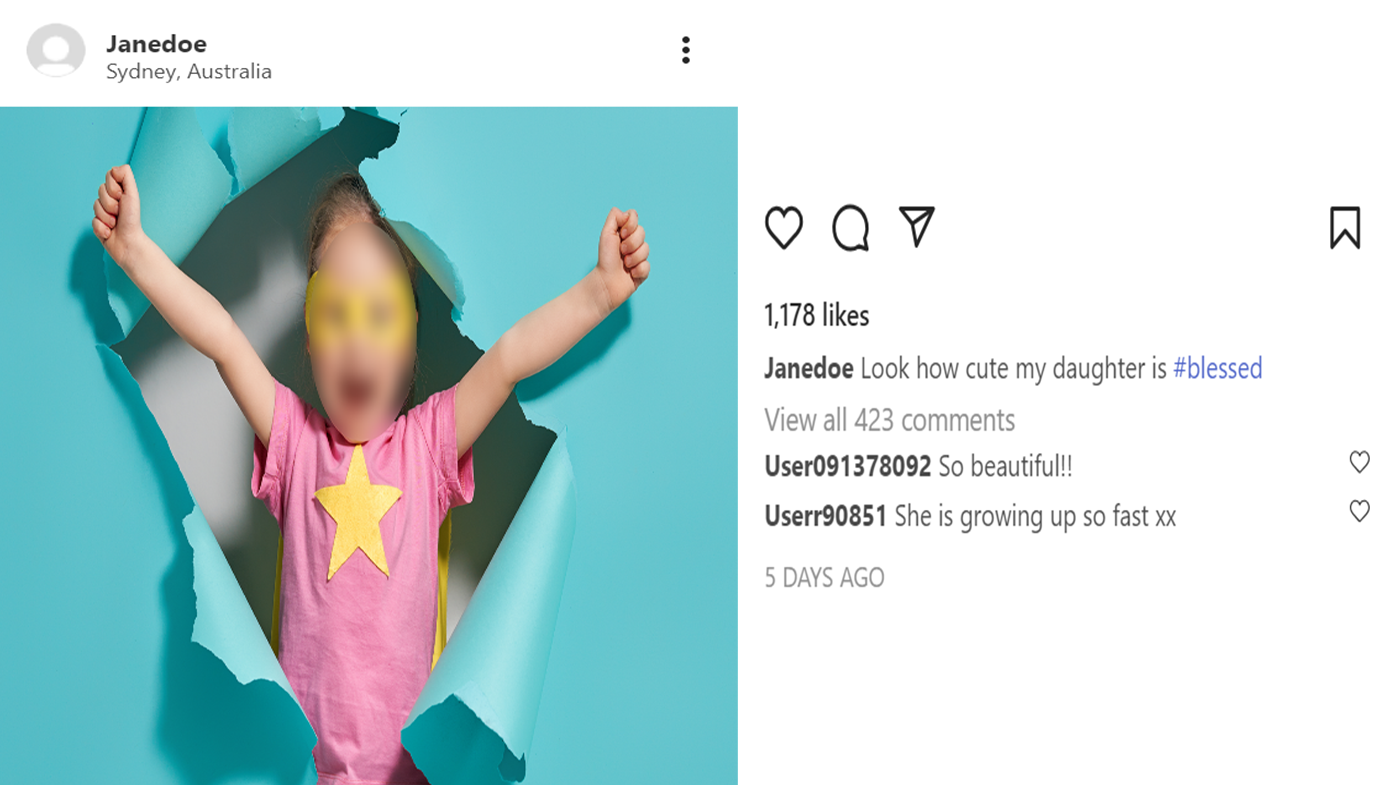A first day of school, the cutting of a birthday cake or a simple happy snap when the lighting is just right.
Parents the world over share these everyday moments on social media, but experts are warning about the hidden dangers of "sharenting".
Parents can be leaving themselves vulnerable to blackmail or scammers using the images to fabricate or impersonate accounts.
READ MORE: A tech expert played along with a 'wrong number' scam. Here's what he found

"Would you be okay to print that picture and stick it on a telegraph pole?" Telstra cybersecurity expert Darren Pauli said.
"And if not, then maybe that's a good indication that you either need to do something about your friends list or maybe don't post a picture."
Research from Telstra found 63 per cent of parents admit to having posted photos of their children on a social media account that is not private or on which they have followers they don't know.
Pauli said many parents were struggling to navigate how to share things online while maintaining their child's privacy.
READ MORE: What to do if your data is compromised in a company hack?

"I think ultimately, the number one concern is knowing who has visibility over the stuff that you're sharing," Pauli said.
"If there is an image that could be used in some way for extortion or blackmail, these are typically the stuff that people will share."
He said criminals often picked up photos posted on social media and set up scam accounts to impersonate people.
Pauli said he regards his Facebook as public even though it is set to private because he has people he doesn't know connected on the platform.
EXPLAINED: What should you do if you drop your phone in water?
Sharenting is also creating increasing questions and concerns surrounding the issue of consent.
"Maybe they (the children) grow up and they become someone who would prefer not to have a public profile, maybe then they lose that ability to make that decision," Pauli said.
Members of parliament in France are debating an anti-sharenting bill, which seeks to make parents responsible for the privacy rights of their children who cannot consent to their images being uploaded online.
On average a child has their picture shared on online 1300 times before they are able to create their own social media profile at 13 years old, according to an English study.
Online safety sharing tips
Sharenting may seem hard to avoid but there are some easy ways to still share photos of your children with family and friends, with a lower risk of impersonation scams and consent issues.
Digital photo albums
Pauli recommends using digital photo albums to share pictures among family and friends, which can ensure images are kept private.
"I use Google Photos and have an album there and I invite all my family," he said.
Unique passwords
If you want to use Facebook or Instagram, Pauli recommends having unique passwords for everything to lessen the risk of accounts being hacked and photos of children being shared.
"If say your LinkedIn, not picking on LinkedIn particularly, but if LinkedIn gets hacked and you have the same password on your Facebook, I'll bet my last dollar that that's going to get hacked too."
READ MORE: How to create a strong, safe and secure digital password
Review content
Pauli recommends double-checking content with children before posting.
This could include making sure they are not in a school uniform with an easy to identify logo, checking whether a location is tagged or if you are at you local cafe.
"These are all identifiable details and it's best to keep these private," Pauli said.
"Look to post photos that don't highlight personal details."
Be aware of scams
"It's important to be aware of popular scam tactics targeted at children or that children are more susceptible to, some of these include offering a fake Australia Post delivery, transport card and toll scams, and fraudulent 'important' or 'urgent' messages from an Australian bank," Pauli said.
For more information on how to be scam aware you can read Telstra's advice here.
Sign up here to receive our daily newsletters and breaking news alerts, sent straight to your inbox.
